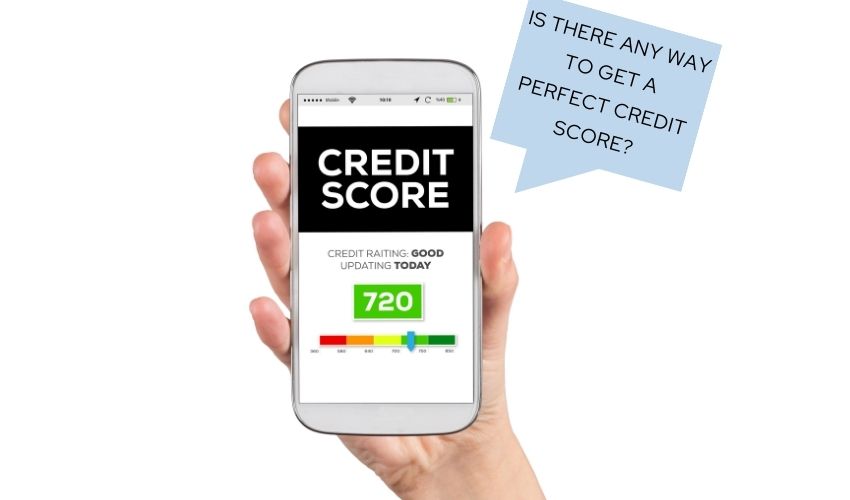The race to get the highest credit score will never end; after all, it decides what attractive deals you will get when applying for a loan. Despite putting in a lot of effort to make up for past mistakes, the hope of achieving a perfect credit score proves to be a mirage. Is there any perfect credit score?
As you know, the highest credit score is 850, according to a FICO score model. Reaching up to this level is not plain sailing, but having the highest score is unnecessary to take advantage of the best deals available with lenders. As long as you have a score over 700, you are good to go.
However, maintaining a good credit rating is not easy. Many borrowers believe their credit reports will show them an advantage as they never made a default. Unfortunately, you do not realise that payment history accounts for only 35% of your credit rating.
Here are a few possible reasons why your credit rating is revealed to be bad despite regular payments:
The length of your credit history is too short and cannot support the fact that you will repay on time.
You handled only one debt or similar types of loans.
Your total debt makes up more than 30% of your income.
Tips to get a perfect credit score
If you are looking to maintain a healthy credit file, you should follow the following steps:
Pay your bills on time
When your credit card bill is generated, you are given a grace period so you can budget to clear the whole balance. Although you have made your payment on time, your credit report likely shows a balance when it is reviewed after a new application for a loan is put in.
Neither your credit card provider nor a credit reference agency is at fault if this is the case. This might be because of varying the dates of reporting your credit card balance from the payment date.
Please inform your credit service provider about it in advance to synchronise your payment date. Clearing the whole balance before they inform the bureau of your balance will be very fruitful. If you cannot schedule that way, you should make more payments. For instance, you should make weekly payments instead of total payments.
Consider a credit mix
Despite paying all your debts on time, chances are you are still prevented from accessing the best deals, which could result from a lack of credit mix. Your lender wants to see how loyal you are towards your debts and what types of debts you can handle.
Suppose you took out urgent loans for bad credit in Ireland and paid the debt on time. This will not reflect your financial commitment. Firstly, the amount of debt is so small that you pay it off in full on the due date. It cannot give clarity about your commitment. Secondly, even if you pay it down in small instalments, it shows your responsibility in handling only one type of debt.
Mortgages, auto loans, credit cards and personal loans all work differently. So, you should try to prove to your lender that you have the ability to deal with multiple types of debts without any complications.
Try having a mix of debts like credit cards, overdrafts, small instalment loans and personal loans.
Increase your credit limit
A higher credit limit will allow you to lower your credit utilisation ratio. It will have a better impact on your credit score. Although experts recommend not more than 25% of it, you should aim at a lower percentage. The lower, the better.
You should apply for a new credit card to increase your credit limit. However, it is crucial to have control over your spending. If you behave impulsively, you will increase your credit utilisation ratio.
Opening a new credit card will temporarily pull your credit points, as every time you do so, your credit card provider will run hard search footprints. As you intend to increase your credit limit, do not close your old accounts, as otherwise, your credit utilisation ratio will plummet.
There is no point in opening a new credit card if you want to close old credit card accounts. Another thing to bear in mind is that closing your old credit card accounts will also reduce your credit length.
Regularly monitor your credit report
This is the most crucial step that you often ignore. When you make payments on time, they are not automatically recorded in your credit report. A lender has to inform credit bureaus of your timely payments. They likely missed the report, or erroneous information was recorded.
Further, you should watch out for fraud and identity theft. Some borrowers steal their identity from others and keep opening new credit accounts and making defaults. Since loans are withdrawn in your name, you face all the consequences.
Check your credit report at least once a quarter. Ensure you dispute an error or a default and a credit account you think never belonged to.
The final word
A perfect credit score hinges on multiple factors, so you will have to focus on all aspects of calculation, not just a payment history. You do not need to emphasise the highest credit rating. Just aim at maintaining your debts responsibly.
If you stick to payments, your credit report will automatically be in good condition. However, if you focus on a credit mix and a length of credit, you can take it a notch higher.
Be sensible with your spending so you do not ruin your budget. This is the best way to avoid racking up debt. Borrow money only when you can make payments on time.






